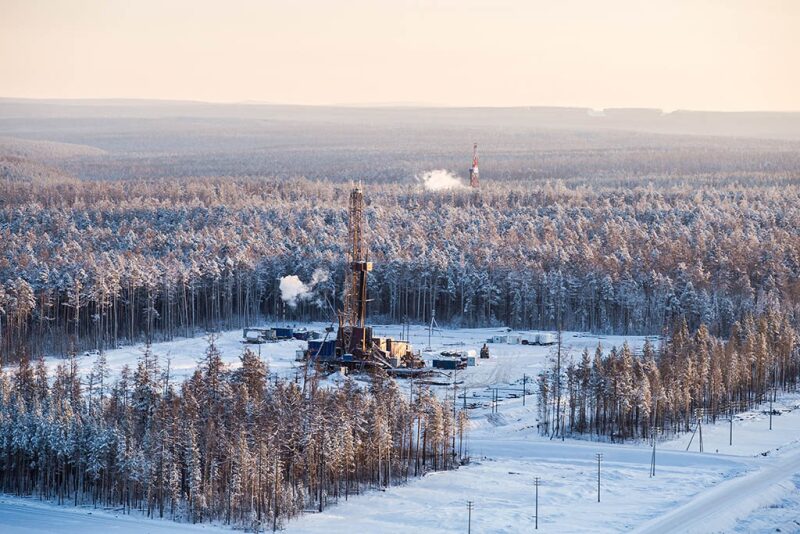The world’s three biggest oilfield service (OFS) companies are coming to terms with the disruption of their business in Russia by turning to other markets for future growth. This was among the key messages issued from executives during quarterly earnings calls last week.
Schlumberger was the most upbeat on the matter as it turned in a quarterly revenue that topped $6 billion for the first time in 5 years.
The company said the now 2-month Russia-Ukraine war has only had a limited impact on revenue. Most of the downside felt from its Russian exposure—which has represented around 5% of recent earnings—was attributed to the devaluation of Russian currency, it said in its latest round of calls with institutional investors.
Framing the war a “tragic conflict,” CEO Oliver Le Peuch said, “It’s very difficult at the moment to predict what the impact may be in the upcoming quarter, considering the uncertainty.”
Among the looming possibilities could be further Western sanctions that force Schlumberger to curtail or stop operating altogether in Russia. Schlumberger announced last month its intent to restrict new investment and technology deployments in Russia.
Baker Hughes made a similar decision last month to halt new investments in Russia which during the first quarter represented about 4% of the company’s $4.8 billion in revenue. The company did not offer a positive outlook on its ability to maintain that share of Russian sales in the coming months.
Brian Worrell, the chief financial officer at Baker Hughes, said on the earnings call that “sanctions from the US, UK, and the EU continue to evolve and are making ongoing operations increasingly complex and significantly more difficult.
“As a result,” he continued, “we expect erosion of our Russia-related revenues over the course of 2022, particularly in OFS. However, the pace and magnitude of this is difficult to predict given the dynamic nature of the situation.”
To help offset losses in Russia, Baker Hughes is counting on green shoots in North America. The service company is forecasting year-over-year revenue growth in North America to top 40% compared with low- to mid-double-digit growth across the rest of the global industry.
Looking to next quarter, Schlumberger is also counting on the action in North America to gain steam along with other big pieces of its international portfolio.
“The industry is responding to this high-commodity- price environment with accelerated short-cycle investment in North America, led by the private producers, and a gradual increase in investment by the public operators, albeit tempered by capital discipline and bottlenecks in capacity and supply chain,” said Le Peuch.
Speaking on the international side, Schlumberger’s CEO said short-cycle spending will be strongest by the second half of the year led by Middle East operators along with the most active offshore basins.
Russia may still prove to be a drag on the bottom line due to what Le Peuch cited as “the uncertainty around the ruble deprecation, impact on sanctions, and customer activity decline.”
Halliburton is so far the lone service company among the big three OFS firms to announce that it will halt ongoing projects and completely exit Russia, actions that CEO Jeff Miller said are ongoing.
While reporting to investors that quarterly earnings jumped 24% to $4.3 billion, Halliburton’s chief said the unfolding Russia-Ukraine war “is a tragedy on many dimensions” but that Russia only represents about 2% of the company’s revenue.
Driving earnings were North American sales which swelled by 37% year-over-year along with international growth that trailed at a still healthy increase of 15%. The macro picture as seen from Halliburton's point of view is that this growth is sustainable since the
world was facing a supply crunch prior to the outbreak of war in Europe.
“Current oil supply, tightness, and commodity-price levels strengthen my confidence in the accelerating multiyear upcycle and very busy years ahead for Halliburton,” said Miller.
He added, though, that this upcycle will reflect some of the big industry trends of late. That includes pressures from investors and regulators on environmental commitments “which make it more difficult for operators to commit to long-cycle hydrocarbon investments and instead drive investment flexibility through short-cycle barrels.”
This unfolding scenario, Miller concluded, will lead oil and gas producers to favor “development over exploration, tiebacks vs. new infrastructure, and shale rather than deep water.”


